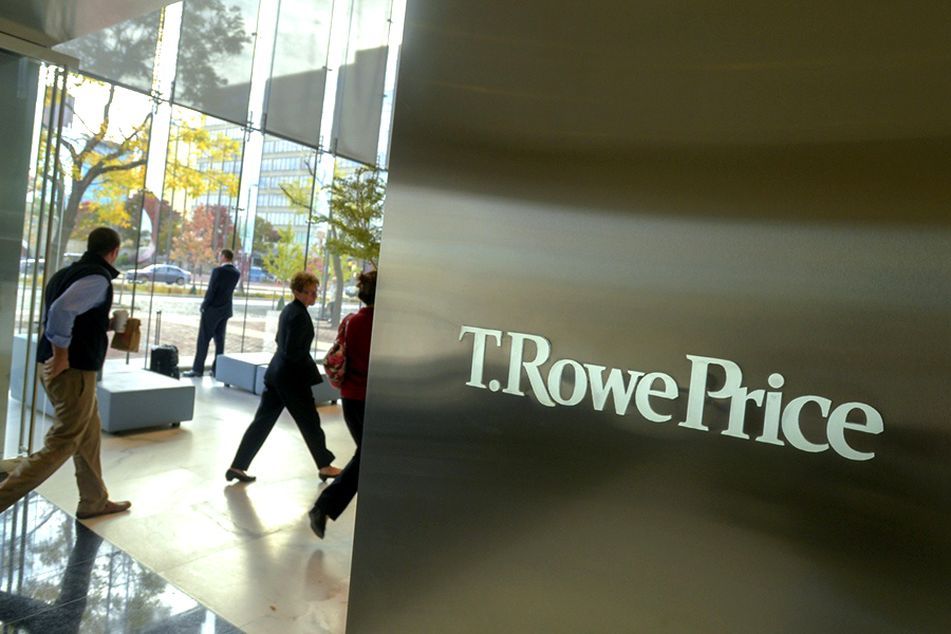T. Rowe Price to launch new asset management business

The new platform will be seeded with six funds managing $167 billion in a effort to manage capacity issues
T. Rowe Price Associates is carving out a second asset management business called T. Rowe Price Investment Management to help the $1.3 trillion asset manager maintain and expand its exposure to many of the small and midsized companies that populate its portfolios.
The Baltimore-based fund complex, which is by far the world’s largest manager of small- and mid-cap portfolios, said the move isn’t specifically aimed at the eventual reopening of some of its popular funds, but acknowledged that as a potential benefit of operating two separate investment research and asset management units.
For most financial advisers and investors, the new unit, which isn’t expected to open until mid-2022, will have no material impact on how they conduct business with the fund company because the distribution and back-office operations will continue to be centralized.
“The good news is, it seems as if some of those T. Rowe funds that are closed to new investors are more likely than not to be opened in a couple of years,” said Todd Rosenbluth, director of mutual fund and ETF research at CFRA.
According to Morningstar, there are 10 T. Rowe strategies totaling about 30% of the firm’s $1.3 trillion that are closed to new investors. Funds typically close to new investors when they reach capacity levels that can be imposed both at the company level and by regulators that limit a single asset manager’s ability to own too much of any single stock.
Rob Sharps, T. Rowe’s head of investments and group chief investment officer, said the company is not currently bumping up against any ceilings in terms of individual stock ownership, but admitted that future capacity concerns is a driving force behind the creation of the new business.
“The goal is to give us more flexibility around investment capacity,” he said.
While spinning off a second asset management unit is not unique to T. Rowe Price in the fund industry, Sharps said the matter of capacity is becoming a bigger issue as the number of publicly traded companies continues to decline.
Fewer public companies, especially in the more concentrated small- and mid-cap universe, could force T. Rowe research analysts and portfolio managers to deviate from their investment objectives to meet investor demand for access to a particular strategy.
Thus, some popular funds wind up closed to new investors.
“There is fund capacity and firm capacity for certain stocks, and they seem to be tackling the latter,” Rosenbluth said. “This would also allow them to stay consistent with their investment philosophy. One reason you close a fund is because you don’t want to buy your 101st favorite stock.”
T. Rowe is giving itself at least 18 months to launch the new business, which will include a blend of new and existing T. Rowe employees. T. Rowe Investment Management will be seeded with the heft of six existing mutual funds that combine for $167 billion.
“We want to do this in a deliberate and front-footed way,” Sharps said. “Six strategies will be transitioned to the new investment adviser. They will have their own research platform that will operate independently from the existing T. Rowe platform.”
The portfolio managers moving to the new platform include Brian Berghuis and David Giroux, both of whom are past winners of Morningstar’s Fund Manager of the Year award. Giroux will be chief investment officer of the new business.
The other portfolio managers joining the business include Frank Alonso, Kevin Loome, Curt Organt, and David Wagner.
The portfolio managers average 24 years of investment experience at T. Rowe.Like the original platform, the new one consists of existing mutual funds as well as other investment vehicles managed by the same PM.
For example, Giroux and his Capital Appreciation fund will move to the new platform along with all the other vehicles he manages in the Capital Appreciation investment strategy, such as separate accounts, and collective investments trusts.
Stephon Jackson, currently associate head of U.S. equity and a 13-year veteran of T. Rowe’s equity division, will become head of the new platform.
Jackson will also join the T. Rowe Price Group management committee on Jan. 1, 2021.
“Equity and fixed income collaboration has been a foundation of our investment success,” Jackson said in a statement.
“Having these particular strategies together within T. Rowe Price Investment Management will enable the equity teams to leverage the high yield team’s fixed income insights, provide the US High Yield Bond Strategy’s team with new access to equity insights and improved corporate access, and retain the US Capital Appreciation Strategy’s ability to tap fixed income trading, which is an important aspect of its investment approach,” he added. “In addition, bringing a mix of equity strategies that span large-, mid-, and small-cap, as well as growth, core, and value styles, will maximize TRPIM’s ability to generate insights.”
In a report Thursday morning, Morningstar praised the move as a “logical solution to the firm’s long-standing capacity challenges” and added, “the mix of strategies on each side is well-reasoned, though it means the elimination of long-standing collaboration between certain portfolio managers and analysts.”
“In typical fashion, T. Rowe has approached this massive undertaking with proper planning,” the Morningstar analysis continued.
Learn more about reprints and licensing for this article.








